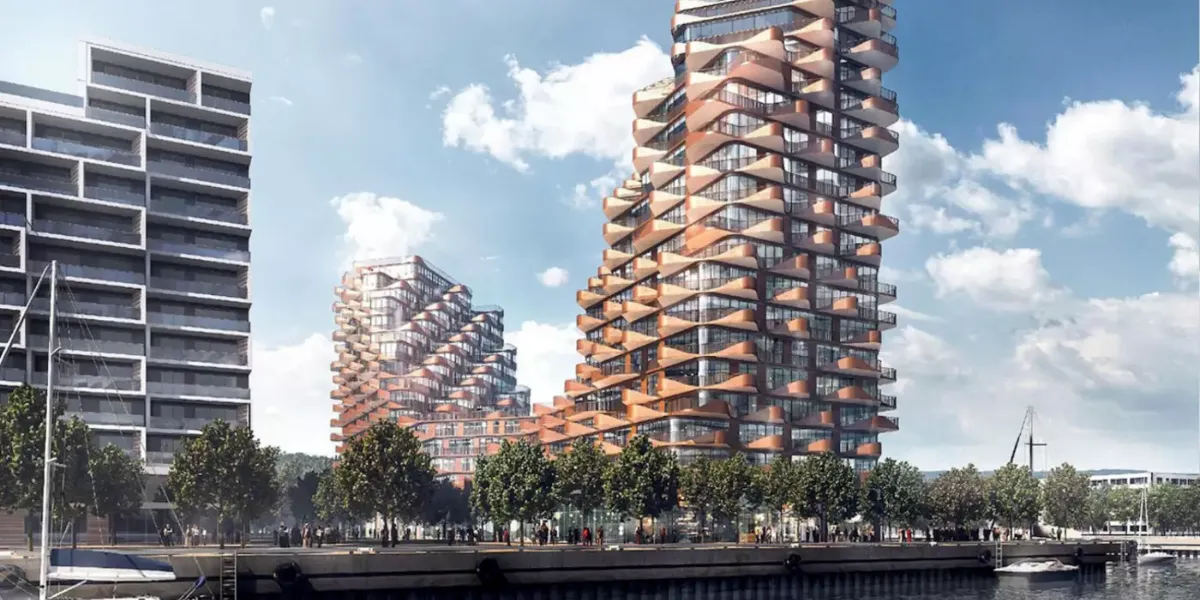Factors That Determine The Price Of A Condo In Toronto Toronto’s real estate landscape is vibrant, diverse, and often dynamic. Among its various property types, condominiums stand out for their popularity and investment potential. However, understanding what determines the price of a condo in Toronto can be complex. In this article, we’ll delve into the key factors that influence condo prices in the city, shedding light on what buyers and investors need to consider before diving into the market.
Location: The Prime Factor Influencing Condo Prices

It’s no secret that location plays a pivotal role in real estate, and the same holds true for condo prices in Toronto. Proximity to amenities such as schools, parks, shopping centers, and entertainment districts can significantly drive up the price of a condo. Neighborhoods like Yorkville and The Annex command premium prices due to their central location and upscale surroundings.
Size Matters: Square Footage and Price
When it comes to condos, size indeed matters. Larger units naturally come with higher price tags, reflecting the additional space and potential for customization. However, the price per square foot can vary widely depending on the neighborhood and building amenities. Understanding the balance between size and price is crucial for buyers looking to maximize value within their budget.
Amenities: Luxuries That Impact Price Tags

Condo amenities go beyond the unit itself. Facilities like gyms, swimming pools, concierge services, and rooftop gardens contribute to the overall appeal of a condominium complex. Consequently, condos with extensive amenities tend to command higher prices, as they offer residents a luxurious lifestyle and added convenience.
Market Trends: Supply and Demand Dynamics
The ebb and flow of the real estate market directly influence condo prices in Toronto. In a seller’s market with high demand and limited supply, prices soar, creating a competitive environment for buyers. Conversely, during a buyer’s market, prices may stabilize or even decrease, offering opportunities for savvy investors to secure deals.
Developer Reputation and Quality of Construction

The reputation of the developer and the quality of construction play a crucial role in determining condo prices. Established developers known for their track record of delivering high-quality projects often command premium prices for their condos. Buyers are willing to pay more for peace of mind knowing they are investing in a well-built and reputable development.
Transit Accessibility: A Key Consideration
Toronto’s robust public transit system significantly influences condo prices. Proximity to subway stations, streetcar routes, and major transit hubs adds convenience and value to a condo’s location. Properties located within walking distance of transit options often fetch higher prices, as they appeal to commuters and urban dwellers alike.
Neighbourhood Features: The Surrounding Environment

Beyond transit accessibility, the overall vibe and amenities of a neighborhood impact condo prices. Factors such as walkability, green spaces, safety, and community atmosphere contribute to a neighborhood’s desirability. Condos in trendy, up-and-coming neighborhoods may see rapid appreciation in value as the area develops and attracts more residents.
Age of the Building: New vs. Resale Condos
The age of a condominium building can also influence its price. Newer constructions often come with modern amenities and finishes, commanding higher prices due to their appeal to buyers seeking the latest features and technology. On the other hand, resale condos may offer more space for customization and potentially lower prices, particularly in older buildings.
Condo Fees: Maintenance and Amenities

While condo fees are a recurring expense for owners, they also impact the initial purchase price. Condos with higher fees typically offer more extensive amenities and services, which can justify the higher upfront cost. Buyers should carefully assess condo fees alongside other factors to determine the overall value proposition of a property.
Economic Factors: Interest Rates and Affordability
Economic conditions, including interest rates and affordability, play a significant role in shaping condo prices. Low-interest rates stimulate demand by making mortgages more accessible, leading to higher prices in the housing market. Conversely, rising interest rates can dampen demand and stabilize or lower condo prices, creating opportunities for buyers.
Regulatory Impact: Government Policies and Taxes

Government policies and taxes can also influence condo prices in Toronto. Changes in regulations, such as foreign buyer taxes or zoning restrictions, can impact demand and supply dynamics, affecting prices accordingly. Buyers and investors should stay informed about regulatory developments that may impact the real estate market.
Future Prospects: Investment Potential and Appreciation
Finally, considering the future prospects of a condo is essential for investors. Factors such as neighborhood development plans, infrastructure projects, and job growth can signal long-term appreciation potential. Investing in condos with strong growth prospects can yield significant returns over time, making it a lucrative investment opportunity.
In numerous factors determine the price of a condo in Toronto, ranging from location and size to amenities and market trends. By understanding these factors and conducting thorough research, buyers and investors can make informed decisions and navigate the dynamic Toronto real estate market with confidence. Whether purchasing a condo for personal use or investment purposes, considering these factors is essential for securing a property that meets both financial and lifestyle goals.
Click here for more visited Posts!




